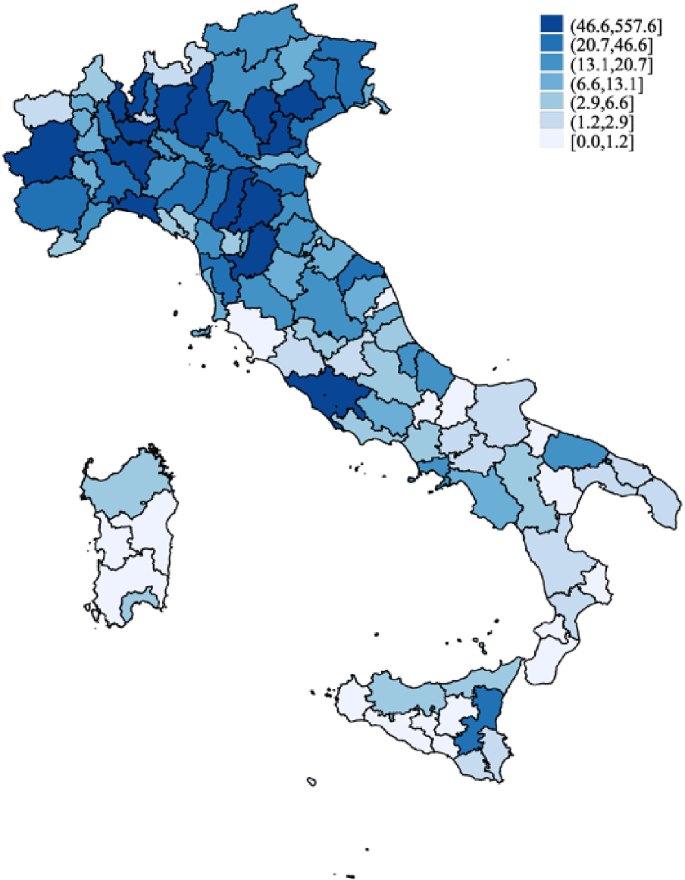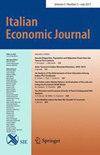创新抵抗:创新者是否能免受外部冲击?
IF 1.2
Q3 ECONOMICS
引用次数: 1
摘要
经济冲击通常很难预测,因为它们独立于受影响的经济主体的意志,因此对他们的选择是外生的。然而,这种冲击发生时的影响会影响国民经济、企业绩效和个人就业,从而动摇国家经济,并往往具有长期影响。虽然很难预测它们的发生,但有可能承受外源冲击的后果,并且在它们发生时更具弹性。为了走在创新的前沿而进行投资,是经济体可以用来保护其主体的工具之一,从而保护他们免受意外经济事件可能导致的衰退的影响。在本文中,我们以就业水平为重点,研究更具创新性是否能保护意大利各省免受外生冲击的负面影响。更具体地说,分析的对象是创新存量在保护各省就业水平免受贸易和经济冲击方面的作用。该分析在2000年至2018年期间进行,研究了贸易冲击对意大利各省就业水平的影响,以及创新存量在保持这些水平方面的作用。我们的研究结果证实,尽管各省的国际化水平较高,但创新型省份在外部贸易和经济冲击中受到的保护更大,这种效应在南部和北部地区都很明显。本文章由计算机程序翻译,如有差异,请以英文原文为准。

Innovate to Resist: Are Innovators Shielded from External Shocks?
Abstract Economic shocks are often difficult to predict, as they are independent of the will of the economic agents affected and, therefore, exogenous to their choices. However, the effects of such shocks when they occur impact on national economies, business performance, and employment of individuals, thus shaking countries’ economies, and often with long-lasting effects. Although it is difficult to predict their occurrence, it is possible to withstand the consequences of exogenous shocks and be more resilient should they occur. Investing in order to be at the frontier of innovation is one of the tools that economies can adopt to protect their agents, thus defending them from the downturns that can result from unexpected economic events. In this paper, we study whether being more innovative does protect Italian provinces from the negative effects of exogenous shocks, with a focus on employment levels. The object of the analysis is, more specifically, the role of the innovation stock in protecting provinces’ employment levels from trade and economic shocks. The analysis, conducted in the period 2000–2018, examines the effect of trade shock on Italian provinces’ employment levels, and the role of the innovation stock in preserving those levels. Our results confirm that innovative provinces are more protected from external trade and economic shocks, with this effect being evident in both Southern and Northern regions, and despite the level of internationalization of provinces.
求助全文
通过发布文献求助,成功后即可免费获取论文全文。
去求助
来源期刊

Italian Economic Journal
ECONOMICS-
CiteScore
2.30
自引率
8.30%
发文量
35
期刊介绍:
Italian Economic Journal (ItEJ) is the official peer-reviewed journal of the Italian Economic Association. ItEJ publishes scientific articles in all areas of economics and economic policy, providing a scholarly, international forum for all methodological approaches and schools of thought. In particular, ItEJ aims at encouraging and disseminating high-quality research on the Italian and the European economy. To fulfill this aim, the journal welcomes applied, institutional and theoretical papers on relevant and timely issues concerning the European and Italian economic debate.ItEJ merges the Rivista Italiana degli Economisti (RIE), the journal founded by the Italian Economic Association in 1996, with the Giornale degli Economisti (GdE), founded in 1875 and enriched by contributions from renowned economists, including Amoroso, Black, Barone, De Viti de Marco, Edgeworth, Einaudi, Modigliani, Pantaleoni, Pareto, Slutsky, Tinbergen and Walras.
 求助内容:
求助内容: 应助结果提醒方式:
应助结果提醒方式:


